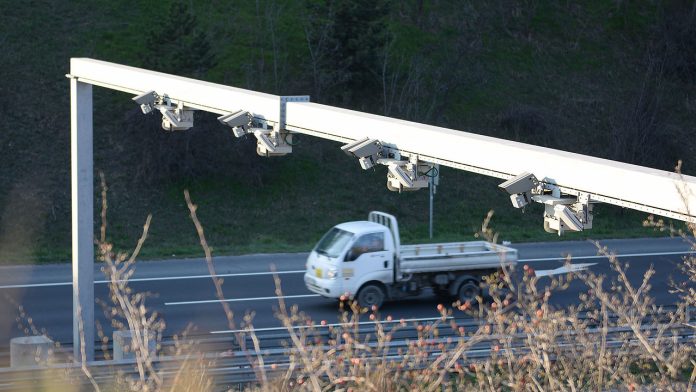
Last Friday, Mayor Bruce Harrell announced that the City of Seattle will not be including ShotSpotter or similar acoustic gunshot locator systems in its upcoming crime prevention technology pilot program.
While the Mayor’s Office has said this decision is based on available funding “now that more specific cost estimates have been received,” ShotSpotter and its controlling company SoundThinking have been under fire in recent months. In February, Chicago Mayor Brandon Johnson announced the city would not be renewing their ShotSpotter contract, and just last week Houston Mayor John Whitmire said his city would also be abandoning their ShotSpotter contract.
“I think it is a gimmick,” Whitmire said. “I think it was cooked up by contractors and personally, talking to officers, it doesn’t do any good.”
In fact, in the last two years, a whole host of cities have either rejected or canceled their ShotSpotter contracts, including Buffalo, Atlanta, Portland, Indianapolis, San Diego, Durham, Dayton, and Green Bay.
And last month, Senators Edward J. Markey (D-Mass.), Elizabeth Warren (D-Mass.), and Ron Wyden (D-Ore.) asked the Department of Homeland Security’s Office of the Inspector General to investigate grant funding spent on ShotSpotter, including whether its use might lead to violations of the Civil Rights Act.
“Several recent reports have cast substantial doubt on the accuracy and effectiveness of the ‘ShotSpotter’ gunshot detection system and have raised serious questions about its contribution to unjustified surveillance and over-policing of Black, Brown, and Latino communities,” the lawmakers wrote.
Wyden went so far as to suggest the technology had been discredited.
“There is more than enough evidence at this point to conclude that technologies like ShotSpotter do essentially nothing to stop crime, but instead have a well-documented discriminatory impact on marginalized and vulnerable communities,” Wyden told Wired.
Resistance to ShotSpotter or similar technology has been stiff in Seattle, with a community letter last winter garnering signatures from 70 community organizations and over a thousand individuals. At an educational webinar last fall, Gregory Davis, Managing Strategist at Rainier Beach Action Coalition, said, “Our tech is better than that tech” and instead advocated for greater community investment to counter gun violence.
Seattle has faced three previous ShotSpotter proposals in 2012, 2016, and most recently in the fall of 2022, but has never ultimately adopted the technology due to objections from the community.
Incidents of gun violence have increased 13.4% in 2024 over the same period last year, with the City reporting 279 verified events occurring between January 1 and May 23. That said, homicides are trending down after spiking during the pandemic. The Mayor’s Office has not announced any additional investments in community-based solutions to address this increase.
The details of Harrell’s crime prevention technology pilot
Instead of rolling out the controversial ShotSpotter surveillance technology, Harrell’s pilot now consists of two new technologies — closed circuit television (CCTV) and real time crime center (RTCC) software — as well as a major expansion of automated license plate readers. The combined cost of acquiring and implementing these three technologies is $1.8 million. The CCTV cameras will be deployed in three areas: Aurora Avenue N, the Third Avenue corridor downtown, and the Chinatown-International District (CID).
All three of these technologies come with their own concerns. As previously reported in The Urbanist, CCTV has been found vulnerable to discriminatory targeting and hasn’t been shown to mitigate violent crime rates. RTCC software only shows modest improvement in crime clearance rates at best while potentially criminalizing vulnerable populations such as undocumented people, sex workers, trans people, and people seeking abortions, which could have a chilling effect on the exercise of Seattleites’ constitutional rights.
“The City’s plan to deploy three harmful surveillance technologies — CCTV cameras, automated license plate readers, and real-time crime center software — is a vast and concerning expansion of government surveillance on a scale that residents have not previously seen in Seattle’s neighborhoods,” said Tee Sannon, ACLU of Washington’s Technology Policy Program Director,.
In May, Seattle City Council’s public safety committee received a presentation on the automated license plate reader expansion. The technology is a combination of software and hardware that allows police vehicles to capture images of license plates. The plate numbers are then compared to state and national “hot lists” of vehicles that have been stolen or involved in crimes, including those involving missing persons.
This technology is currently used in 11 Seattle Police Department (SPD) squad cars. The expansion would deploy it in 360 vehicles, including 270 marked patrol cars, and it would cost $280,000 per year. License plate reader technology has already been through a surveillance impact report, but due to the size of this proposed expansion, it is now going through an abbreviated review process.
Seattle proposal faces privacy concerns
Critics have raised privacy concerns with the scale of surveillance expansion and with integrating license plate reader data with RTCC software that could make it easier to misuse.
“ALPRs [automated license plate readers] and RTCC software would enable the City to amass an extensive amount of data that could be used to infer people’s activities, associations, and behaviors, and could cause significant harm to people who stand to be most negatively impacted by being tracked, including those seeking reproductive or gender-affirming healthcare and undocumented immigrants,” Sannon said.
The advocacy group WA People’s Privacy concurred with Sannon’s assessment in their letter to the Council late last year.
“While it’s clear that ALPRs appeal to police and cooperating agencies in that they provide broad and easily trackable data about any and every car’s travels throughout the city, state, and nation, this technology poses acute and disproportionate threats to many communities, including immigrants, abortion and gender-affirming care seekers, and Black and Brown people and communities,” WA People’s Privacy wrote. “But ALPRs actually pose great risk to everyone’s first and fourth amendment rights, and thus all people’s safety and security.”
Privacy advocates have highlighted a major flaw in the city’s current data privacy plan: in the expansion, the license plate reader data, which is currently retained for 90 days, will be moved from on-site hosting to a cloud platform managed by Axon. According to Cynthia Spiess, a security researcher, Axon is not bound by Washington State’s Shield Law nor the Keep WA Working Act, which would allow Republican-controlled red states to completely bypass both SPD and the City of Seattle in obtaining this sensitive data.
“The method of bypassing the local police departments by going directly to the ALPR vendor has already been happening for years by the federal government to locate immigrants. This is not new,” Spiess wrote in a recent letter to the Seattle City Council. “It’s…new for every state to have different laws about reproductive healthcare and some states funding bounty hunters, meaning there is a market and demand to hunt down this data for people believed to have gone to places like Seattle to get reproductive healthcare. Red state judges have already been attempting to get data from Seattle-area hospitals. As soon as SPD switches over to a SaaS/cloud-hosted ALPR database, the red states will start issuing subpoenas for license plates of their residents to Axon.”
Advocates are suggesting Seattle continue to house the data on its own servers in order to maintain the city’s ability to act as a sanctuary city. Barring that, they suggest a much shorter data retention period of 48 hours instead of three months, which would make it much more difficult for red states to obtain the data before deletion.
Cathy Moore echoes criticisms, weighs amendments
Councilmember Cathy Moore expressed concerns both around the switch of data storage from in-house to the cloud and the data retention period, saying these are “issues of profound import to the constitutional rights of our citizens and all the other people who come to this state to exercise their basic human rights to care.”
Raising the data storage issue, Moore said, “We have seen increased numbers [of] women trying to access basic fundamental healthcare in Washington state. This council and state very proactively passed shield laws to make sure women are entitled to basic healthcare which our constitution should guarantee and which our Supreme Court has decided we are not first class citizens. I am very, very concerned.”
Moore also brought up the issue of the license plate data being available via public record request. “This information is all available through public records request,” she said. “We are now opening the door to public records requests from people…that would place domestic violence victims at risk, that would potentially increase stalking, harassment, people who are being targeted because of their immigration status, their ethnicity, their religious identity, as well as reproductive care. I am very uncomfortable voting on this until we’ve at least addressed the retention issues under the public records act.”
On Thursday, Moore’s office confirmed she still has reservations about the license plate reader proposal and is “concerned that this legislation poses a potential workaround to the Washington State Shield Law and the Keep Washington Working Act.” She “understands ALPR is useful for identifying stolen vehicles and Amber alerts, but those uses can readily be accomplished in an abbreviated retention period.” She is considering amendments and separate legislation to address the identified risks.
The public safety committee will be continuing to discuss the license plate reader impact report on Tuesday, possibly including Moore’s proposals. Council is slated to take up the reports on CCTV and RTCC software later this summer. None of these technologies will be able to be implemented per Harrell’s plan until they pass a vote of the full council.
Amy Sundberg is the publisher of Notes from the Emerald City, a weekly newsletter on Seattle politics and policy with a particular focus on public safety, police accountability, and the criminal legal system. She also writes science fiction, fantasy, and horror novels. She is particularly fond of Seattle’s parks, where she can often be found walking her little dog.

